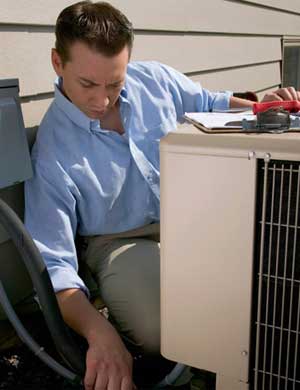Heating, Ventilation and Air-conditioning Engineer
Tasks & duties

Heating, ventilation and air-conditioning engineers may do some or all of the following:
-
study the requirements for heating and cooling systems or equipment
-
investigate existing systems and prepare reports based on findings
-
supervise the installation, repair and replacement of systems
-
design new heating and cooling systems
-
select and size the necessary equipment for a system
-
calculate how much the work will cost
-
prepare the drawings and instructions for building systems
-
help set safety standards and ensure they are met
Skills & knowledge
Heating, ventilation and air-conditioning engineers need to have:
-
knowledge of thermodynamics, physics and maths
-
knowledge of mechanics and electronics
-
knowledge of different gases
-
knowledge of mechanical engineering
-
knowledge of relevant legislation such as the Resource Management Act, the New Zealand Building Code, local by-laws and town planning regulations
-
skill in analysing and interpreting information such as client requirements, plans and designs
-
problem-solving skills
-
planning and organisational skills
-
good communication skills
-
writing skills for producing reports
-
computer skills, including the ability to use computer-aided design (CAD) software
Entry requirements
To become a heating, ventilation and air-conditioning engineer, you can complete a Bachelor of Engineering (Mechanical), or enter the job as an apprentice and complete a National Certificate in Heating and Ventilation and Air Conditioning (Level 4) while working.
Heating, ventilation and air-conditioning engineer apprenticeships come under the Modern Apprenticeship Scheme (for 16 to 21 year olds).
Competenz website – information about the national certificate.
Secondary education
Bursary or NCEA equivalent English, maths, physics, chemistry and technical drawing are preferred for entry to a Bachelor of Engineering (Mechanical) degree. School Certificate or NCEA equivalent maths and science are recommended for those seeking an apprenticeship.
Training on the job
Skills are gained on the job. Heating, ventilation and air-conditioning engineers may also keep up to date with changes in the industry by reading relevant industry literature and attending seminars.
Registration
In November 2007, the Licensed Building Practitioners Scheme was introduced to encourage greater co-ordination in the design and construction of New Zealand buildings. The scheme is being phased in over four years. Under the scheme, some heating, ventilation and air-conditioning engineers will be required to have a specialist licence (be registered).
Useful experience
Useful experience for heating, ventilation and air-conditioning engineers includes:
-
electrical work
-
experience working with tools
-
work in the engineering or building construction industries
-
refrigeration work
Related courses
Building Services Engineering
Mechanical Engineering
Refrigeration, Heating and Air Conditioning
For more information, please refer to Career Services
Document Actions
